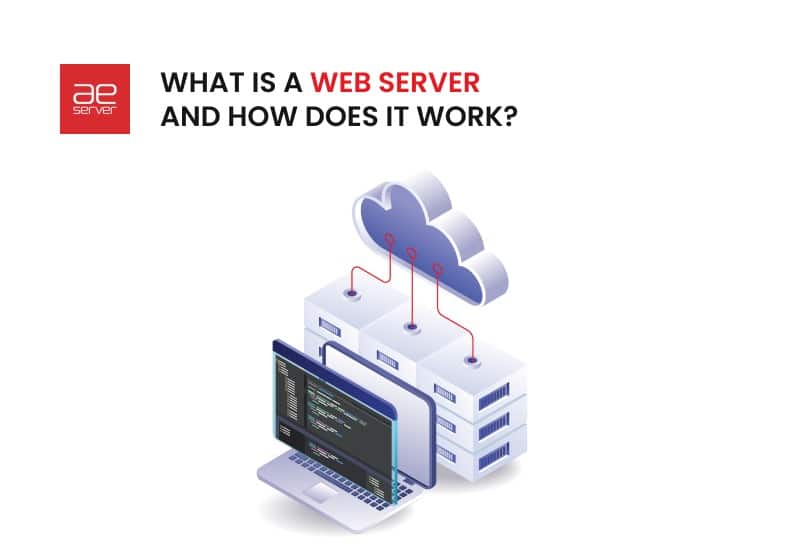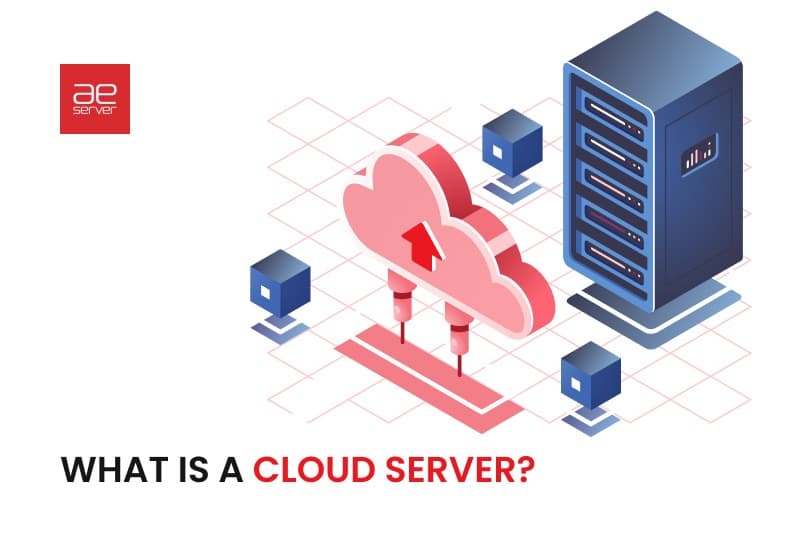
What Is a Web Server and How Does It Work?
Everyone lives in the vast and interconnected space of the Internet. And in all the Internet, there is one unsung hero – the entity that quietly but tirelessly keeps the digital world running. This mysterious figure is none other than the web server. It is the technological marvel that underpins our existence on the Internet.
Imagine the following: You open a web browser and type in a URL. And within seconds, a web page appears on your screen, filled with information. But have you ever wondered how that journey from keyboard to screen happens? It is where this server comes into focus.
In this study, we will go on a journey to uncover the definition of a web server. You will be able to understand its inner workings. Join us as we unravel all the layers of this digital magic.
What Is a Web Server?
The web server is the unspoken hero of the Internet. It works silently behind the scenes, delivering digital content to your browser. At its core, the definition of web server is a specialized computer to store and process data. And it delivers the right thing to users when they request web pages.
Type a web address (URL) into your browser and press the “Enter” button. Then, an amazing sequence of events takes place. Your request goes to the web server that hosts the desired content. The web server, in turn, processes the request. It retrieves the requested files or data from its storage. It sends them back to the browser, which displays the information on the screen.
This elegant dance between the browser and the web server happens in milliseconds. It makes the web server a critical component of the Internet ecosystem. It provides seamless access to sites, offers, and information. And often, we take it for granted. In essence, this system is a digital bridge. It connects your curiosity with the limitless resources of the Internet.
Components of a Web Server
A web server consists of several key components:
- Hardware. It includes the physical server computer, typically a powerful processor, memory, storage devices, and network interfaces to handle incoming and outgoing data.
- Software. The web server software manages requests, processes data, and serves web pages. Popular web server software includes Apache, Nginx, and Microsoft Internet Information Services (IIS).
- HTTP server. The HTTP server component is responsible for processing HTTP requests and responses. It ensures correct interaction between the client and static web server or dynamic.
- File system. Web servers store website files, documents, and media assets in their file system. These files are organized in directories and served upon request.
- Configuration files. These files contain settings and rules that determine how the Web server operates. For example, request routing and security configuration.
- Logging and monitoring tools. Web servers often have built-in logging and monitoring tools. These allow you to track server performance, errors, and visit statistics.
These components work in concert. They provide web hosting and delivery of web content to users.

How Web Servers Work
The job of web servers is to receive and process HTTP requests from clients. They then deliver the requested web pages and resources in response. You already know what a web server is. Now it’s time for you to learn the process of how it works:
- Listening to requests. The web server listens to incoming requests on a designated port (usually 80 for HTTP or 443 for HTTPS).
- Request processing. When a web server receives a request, it interprets the request. It determines what web page or resource is being requested.
- Finding the resource. The server fetches the requested content from its file system or a database.
- Response generation. The server generates an HTTP response containing the requested content. It adds the necessary headers and sends it back to the client.
- Display to the client. The client’s browser displays the received content for the user to view.
Web servers also provide security, authentication, and various configurations. It ensures smooth and secure data transfer.
Types of Web Servers
Web servers can be categorized into two main types based on their handling of web content:
- Static web server:
These servers serve pre-existing, unchanging files directly to clients. They efficiently deliver static content like HTML, CSS, JavaScript, and images. Examples include Apache and Nginx. Static web servers are ideal for websites with content that doesn’t frequently change.
- Dynamic web server:
These servers generate web pages on the fly in response to user requests. They often interact with databases and execute scripts. They are critical for applications that require real-time data. Examples include Microsoft IIS, LiteSpeed, and Tomcat. You can use a dynamic web server for content management systems (CMS). You can also use it for web applications.
Future Trends in Web Server Technology
Future trends in web server technologies are shaping the digital landscape. Major trends include:
- Containerization. The introduction of container orchestration platforms such as Kubernetes will simplify deployment. It will also make it easier to scale and manage web servers.
- HTTP/3. The adoption of QUIC-based HTTP/3 will improve the performance of web servers. It will come at the expense of faster and encrypted connections.
- Edge computing. Static and dynamic web servers will be brought closer and closer to end users through edge computing. It will reduce latency and improve content delivery.
- AI and automation. Artificial intelligence and automation will optimize server resource allocation.
These trends reflect the changing demands of an ever-connected digital world.
Conclusion
In conclusion, the evolution of web server technologies continues to shape how we interact with the Internet. Emerging trends are designed to improve usability, security, and efficiency.
One of the notable players in this dynamic landscape is AEServer. We are a forward-thinking hosting provider. People know us for our commitment to cutting-edge technology and environmental sustainability. AEServer is an example of combining performance and sustainability. We are setting a precedent for future hosting solutions.
In the future, the world of web servers will undoubtedly undergo further innovation and adaptation. It will ensure that the Internet remains a dynamic and ever-improving platform for everyone.
Frequently Asked Question
-
Does a web server have every person on the internet?
No, a web server doesn’t host every person on the internet; it serves web content to users.
-
Is it necessary to connect the web server separately?
Yes, web servers are necessary to connect and deliver web content to users online.
-
Is it important to have a web server?
Yes, web servers are crucial for hosting websites and delivering online content efficiently and securely.



